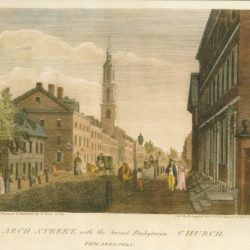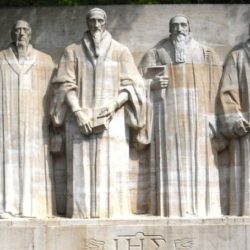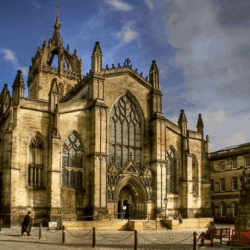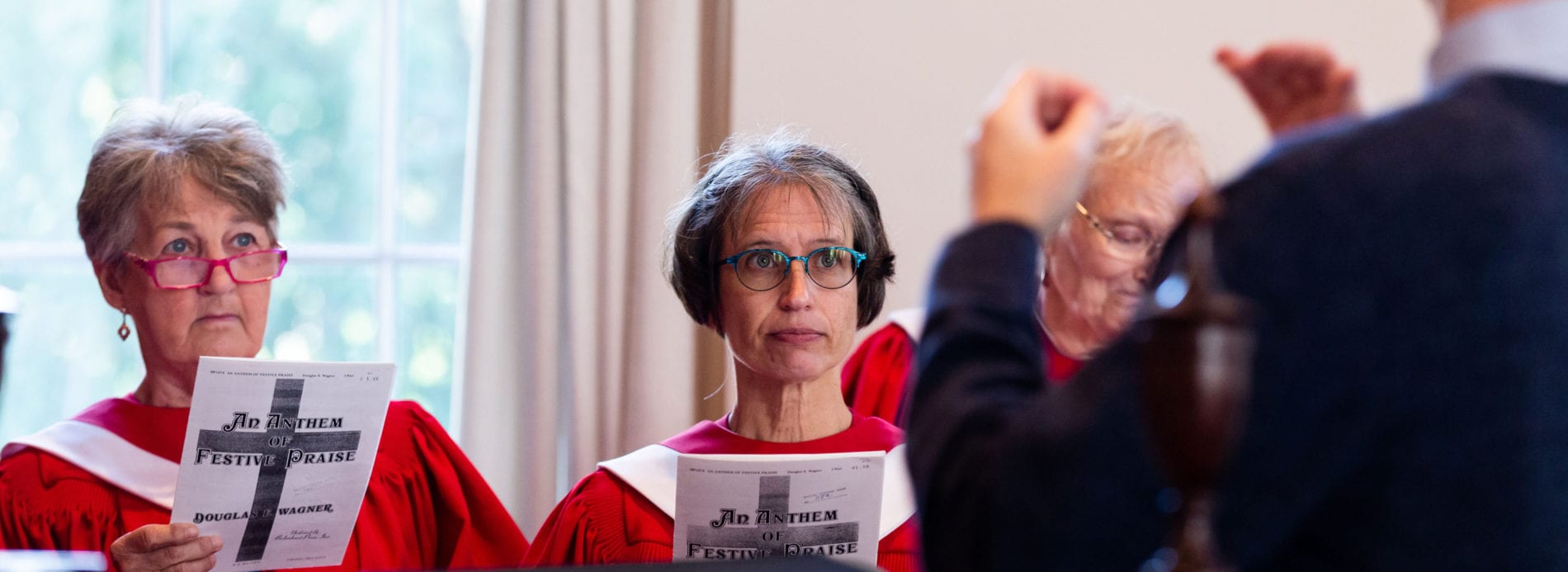Presbyterian Church (USA)
Catonsville Presbyterian Church is a congregation of the Presbyterian Church (USA), a denomination rooted in the Reformed theological tradition. We have our origins in the 16th century church reform movements in Switzerland, Holland, France, and Scotland. Presbyterians were among the earliest immigrants to America. They settled up and down the East Coast, and began to push westward into the American wilderness, founding congregations as early as the 1630s. While Presbyterians have been in Maryland since the 1680s, the first Presbyterian worship service held near Baltimore was 1713. Catonsville Presbyterian Church was founded in 1881.
Today, the Presbyterian Church (USA) is a theologically diverse denomination. While some might view our diversity as a weakness, in many respects, it’s one of our greatest strengths. Despite our differences, we are brothers and sisters who love the same Creator and our differences genuinely allow us to be responsive to God’s call in our lives. Around the world, Presbyterians share a common understanding that we are chosen by God to be disciples of Jesus Christ and this unifying force is much stronger than the things that may make us different from one another.
More information about the denomination’s history can be found at the Presbyterian Historical Society, the oldest denominational archives in the United States and the national archives for the Presbyterian Church (U.S.A.) and its predecessor denominations.




Worship is Central
At Catonsville Presbyterian Church, worship is at the center of all that we do. Every ministry of the church flows from our time in worship. All that we do as a church leads us back to worship to offer our gratitude and praise. Worship is our response to the mystery and majesty of God. In worship we listen for God’s Word—God’s divine voice— speaking to us through the words of scripture and what we hear in the sermon. We encounter the Word in the sacraments of baptism and the Lord’s Supper. Being attentive to the Word, we are continually being formed and reformed by the Word. After worship, we are then sent out in service to the world.
Always Reforming
Ecclesia reformata, semper reformanda! The church reformed, always reforming!
Even to this day, these ancient words are a rallying cry for Presbyterians and other Reformed Christians. It is a motto that reminds us of who we are and who we intend to be. The church, in obedience to Jesus Christ, must be open to the reform of its standards of doctrines, as well as it governance. This is not reform just for the sake of reform; it is always reform according to the Word of God and the call of the Holy Spirit.
Our Reformed motto, rightly understood, challenges both the conservative and the liberal impulses that characterize our diverse church today. It does not bless either preservation for preservation’s sake or change for change’s sake.
Reform has a backward and a forward reference. It leads not only back to the Bible but also forward under the Word to what God is seeking to accomplish through the church. The backward and forward reference of reform invites us on the one hand to attend respectfully to the wisdom and Scriptural interpretations of those who have gone before us with humility. On the other hand, it pushes us to do more than simply reiterate what fathers and mothers in the faith have said. Rather, we must do in our day what earlier reformers and prophets did in theirs: worship and serve the living God. Therefore, while we honor the forms of faith and life that have been bequeathed to us, we honor them best in a spirit of openness to the Word and the Spirit that formed and continue to re-form the church. The church, because of who God is, a living God, remains open to always being reformed.
And the church is called to act, to give itself away. Jesus called us to be “salt” and “light” in the world (Matthew 5:13,14). We are called to love our neighbors as ourselves and care for the stranger and the outcast in our midst. Presbyterians are involved in the reform and transformation of society. We work for social justice as an expression of God’s irrepressible love for the world. We speak truth to power in love. We believe that the good news of God’s love always has a public dimension, it’s never private. As a result, Presbyterians have a long, proud history of working toward major reforms in American society and throughout the world, and we continue the work of healing, renewal, and justice, that it might be “on earth as it is in heaven” (Matthew 6:10).


